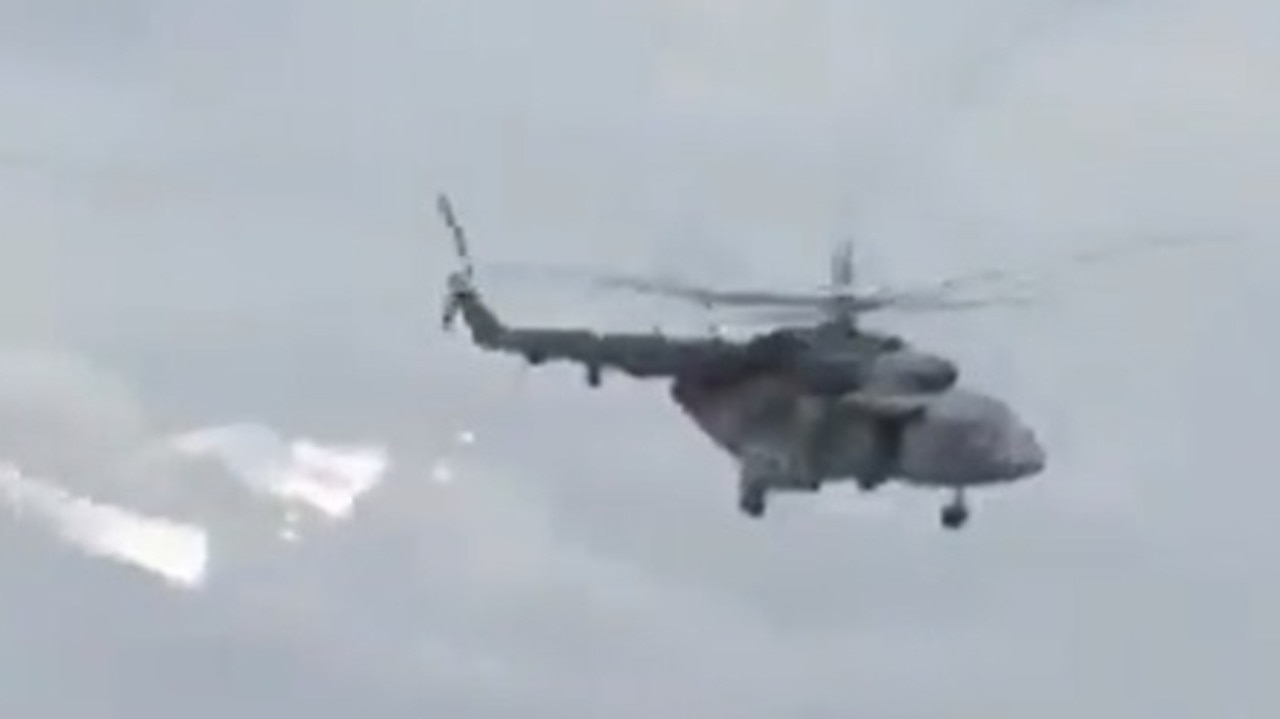[ad_1] Moscow said on Monday that its troops were battling a Ukrainian “sabotage” group that infiltrated the southern Russian region of Belgorod as
[ad_1]
Moscow said on Monday that its troops were battling a Ukrainian “sabotage” group that infiltrated the southern Russian region of Belgorod as locals fled the latest bout of fighting in the troubled territory.
In a first since the start of Moscow’s invasion of Ukraine in February 2022, Russian authorities introduced an “anti-terror regime” in Belgorod.
Since the start of the war, the region bordering Ukraine has been repeatedly shelled in attacks that have killed dozens of people, and the region’s main city was struck in April by a Russian fighter jet that dropped ammunition over Belgorod by accident.
In the latest incursion, members of a “sabotage” group crossed over from Ukraine, Russian authorities said, adding that President Vladimir Putin had been notified.
Governor Vyacheslav Gladkov said eight people had been injured, adding that authorities were helping people leave the scene of the fighting.
The announcement came as Russian forces pummelled the eastern Ukrainian city of Dnipro with missiles and drones overnight, while Kyiv insisted it was still fighting for control of the flashpoint eastern city of Bakhmut.
“The situation here continues to be extremely tense,” Mr Gladkov said, adding that authorities were going door to door to notify local residents.
“Most of the population left the territory. I hope that our military will complete their task in the nearest future.”
The “anti-terror regime” introduced in the southern region gives special powers to security services and entails the enforcement of a number of restrictions and measures including beefed-up security and communications surveillance.
A similar regime was in place in Chechnya between 1999 and 2009, when Russian authorities battled insurgents during Moscow’s second military campaign in the mountainous region.
‘Totalitarian country’
Members of the anti-Kremlin Freedom of Russia Legion claimed responsibility for the incursion into Belgorod.
In a video released by a Telegram channel claiming to represent the group, a camouflaged spokesman, surrounded by armed men in fatigues, said, “Russia will be free!” — a slogan frequently used by Russian opposition activists.
“We want our children to grow up in peace and be free,” the spokesman added, with the channel claiming that two settlements including Graivoron had been attacked.
Kyiv denied involvement.
“Ukraine is watching the events in Russia’s Belgorod region with interest and is studying the situation, but has nothing to do with it,” Ukrainian presidential advisor Mikhaylo Podolyak said.
Mr Podolyak suggested that Russian “guerrilla groups” could be responsible. “The only driving political force in a totalitarian country of tightened screws is always an armed guerrilla movement,” he said.
‘Fighting continues’
The attack on Russia’s region was reported ahead of a widely expected Ukrainian offensive, though President Volodymyr Zelensky has said his country is not yet ready.
Ukraine’s army said earlier Monday that Russian forces pummelled Dnipro with 16 missiles and 20 attack drones overnight.
In the southern Kherson region, a 45-year-old man died when a shell fragment hit him in the heart, officials said. Two people also died in Russian attacks on the region of Donetsk over the past day, officials said.
Both the Russian mercenary group Wagner and the regular army said over the weekend that Bakhmut had fallen, but Ukraine said Monday that its troops continued to fight for the devastated city.
Kyiv said it still controlled a small area of Bakhmut.
“The fighting continues,” Ukraine’s Deputy Defence Minister Ganna Malyar said, a day after Zelensky said Bakhmut was “not occupied” by Russia.
“The battle for the dominant heights on the flanks — north and south of the suburbs — continues,” she said.
On Monday, Wagner chief Yevgeny Prigozhin, whose forces have spearheaded the grinding, months-long Russian assault, said the mercenaries would leave Bakhmut by June 1 and hand over control to regular troops.
Prigozhin said the mercenaries had set up “defence lines” on the city’s western outskirts before a planned transfer of control.
Prigozhin has scathingly criticised Defence Minister Sergei Shoigu and Valery Gerasimov, Russia’s chief of general staff, for alleged blunders in Ukraine, accusing them of incompetence and causing large-scale losses.
Nuclear plant power cut
Following attacks on the region of Dnipro, Ukrainian authorities said that the occupied Zaporizhzhia nuclear power plant in the southeast went offline for several hours.
Ukraine’s nuclear agency Energoatom said it was the seventh time the plant entered “blackout mode” since Moscow’s troops took control in March 2022.
Kyiv later said that despite the morning attack, Ukraine’s energy system was operating in a “stable fashion” and that there was enough electricity to “cover the needs of consumers”.
Located in the southeastern region of Zaporizhzhia, the six-reactor plant is the largest nuclear power site in Europe.
[ad_2]
Source link



COMMENTS